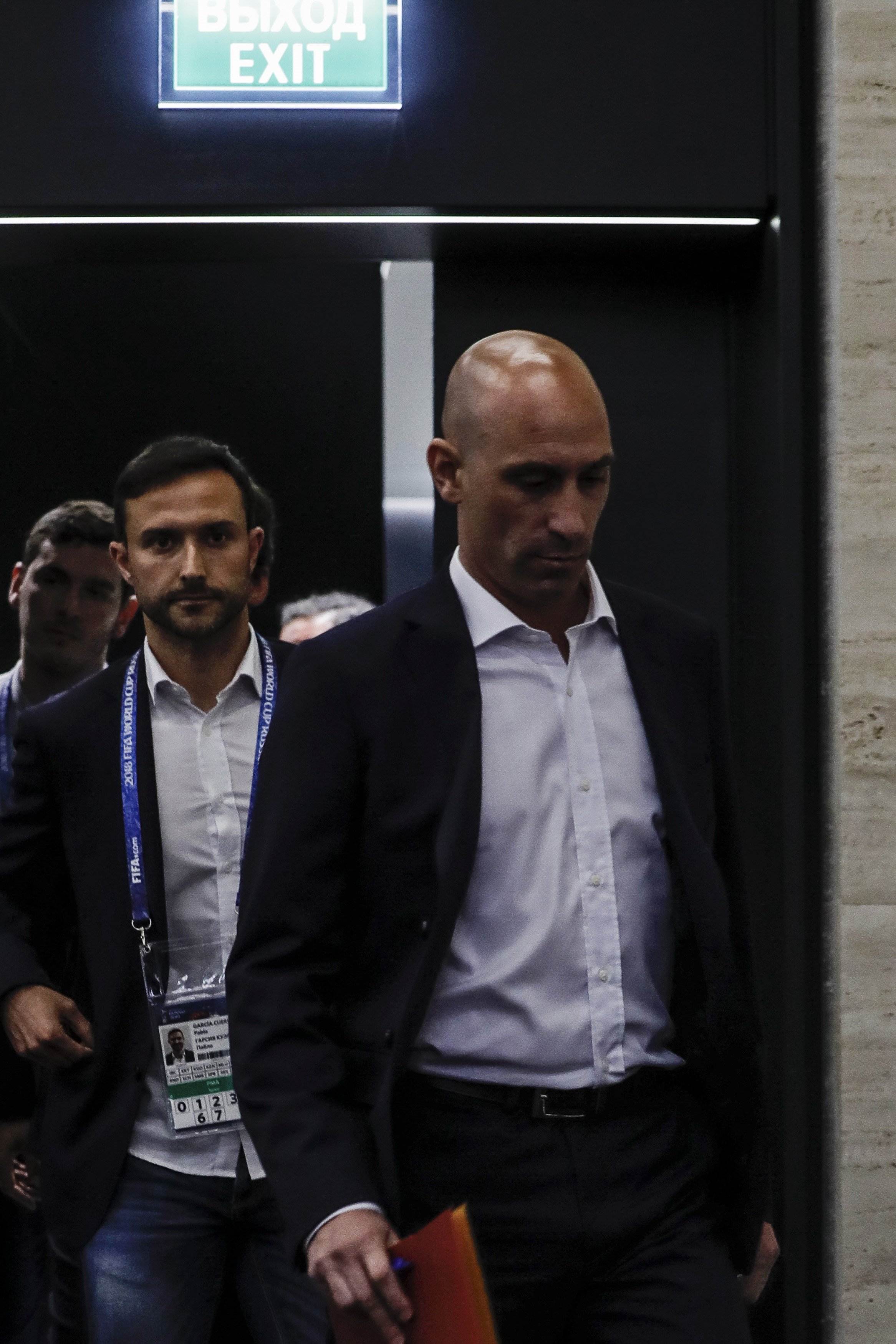The president of the Real Spanish Football Federation, Luis Rubiales, provisionally suspended from his position by FIFA but refusing to resign, has spoken out this Friday afternoon, after the efforts of Spanish authorities to remove him from his position struck legal problems. After a decision by Spain's Sports Administrative Tribunal (TAD) was not strong enough - speaking only of "serious" and not "very serious" infractions - to allow Rubiales' removal, the football chief assured that he is ready to "continue defending himself to demonstrate the truth" and he denounced that the political pressure being applied is "interested and brutal". Rubiales believes that his case shows that the Spanish government is failing to guarantee the "separation of powers".
In a statement published by the newspaper ABC, Rubiales says that he wants to send a message "to all the good people in our country and beyond our borders, including the women who have really been assaulted and who have my full support and understanding: this is not about gender, truly”.
According to Rubiales, "in the name of feminism, we should not try to destroy a man - or a woman - without a fair trial". Rubiales argues that "equality means identical rights for all" and reiterates that "justice must be applied to people without gender determining the outcome beforehand". "I feel that I have been judged unfairly by the media and politicians. This should not happen to anyone again", he adds.
Rubiales adds that he trusts in the independence of the bodies that must settle the issue and accuses the politicians and the media of exerting "interested and brutal pressure". According to the suspended football chief, the information on this case "is being subjected to a lot of manipulation, lies and censorship, but the truth has only one path and that is why I repeat, I trust that justice will be done".
Government seeks interim injunction after legal setback
In developments in the case this Friday, the acting Spanish minister of sport, Miquel Iceta, announced that the Higher Council of Sport (CSD) would ask the Sports Administrative Tribunal (TAD) for an interim injunction in order to be able to suspend Rubiales from his duties. The intention of the Spanish government was to apply article 102 of the sports law so that Rubiales could be removed from the presidency of the RFEF for his non-consensual kiss of the footballer of the Spanish national team, Jennifer Hermoso.
The minister made this statement after, earlier this afternoon, the Sports Administrative Tribunal (TAD) had classified as "serious", but not "very serious", the infringements committed by Rubiales during the celebrations after the Spanish national team had won the Women's World Cup in Australia. This classification prevented the Higher Council of Sports, which depends on the Spanish government, from permanently suspending Rubiales from his duties.
Why did the TAD not describe the offences as "very serious"?
Essentially, it seems the TAD was unable to describe the Rubiales case as "very serious" because of a failure to meet deadlines in the development of the latest sporting law, which means it cannot be fully applied. According to the digital daily El Español, the Spanish government missed the deadline for developing the disciplinary regime of the new legislation by six months. Therefore, the sports tribunal has had to apply legislation that is 30 years old - a 1990 law and its 1992 regulations - instead of the 2022 law.
The new law includes a protocol against sexual violence: "Kissing by force will have immediate consequences," says the new legislation, but it has not been applied to the case. Thus, instead of deciding whether there was a forced kiss, the TAD had to rule on whether there was "abuse of authority", and the tribunal did not see such abuse. It did, however, describe Rubiales' infringement as "serious" in accordance with the second infraction raised by the Spanish government in its complaint: with reference to "evident and public actions that attack sporting dignity or decorum, when they are particularly serious". But the tribunal did not class the offence as "very serious" in this case because there was no "reiteration" seen.

